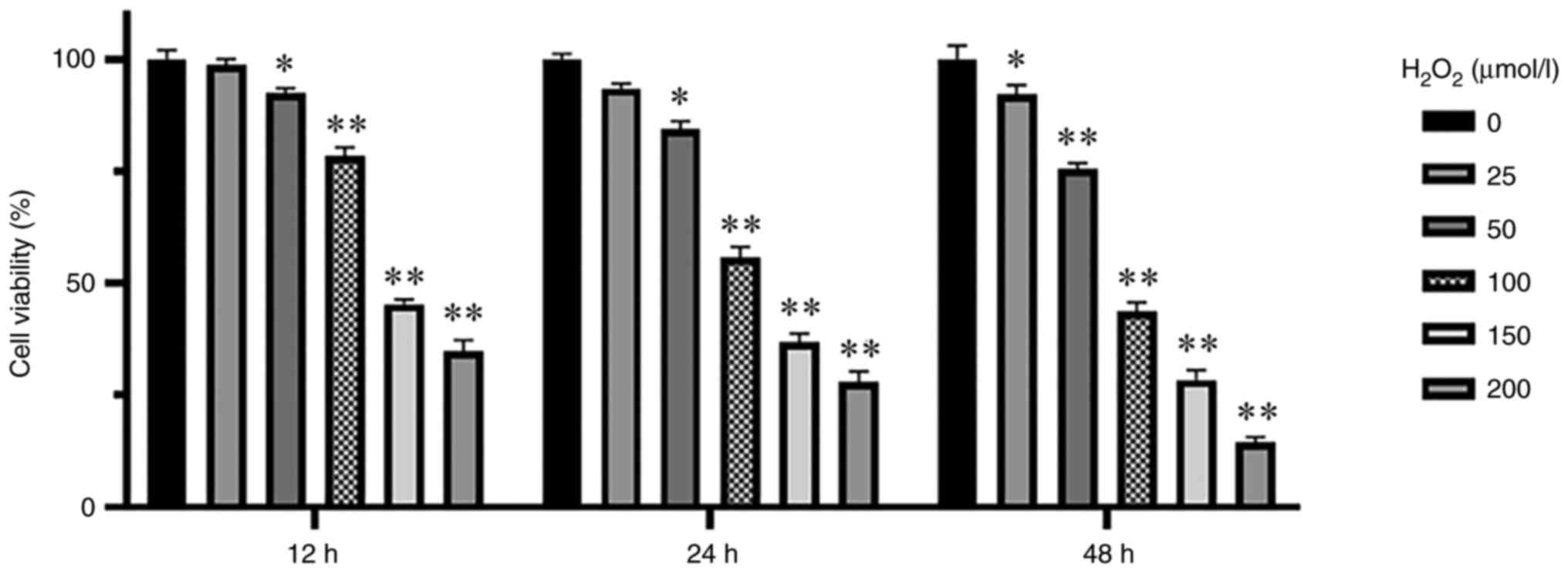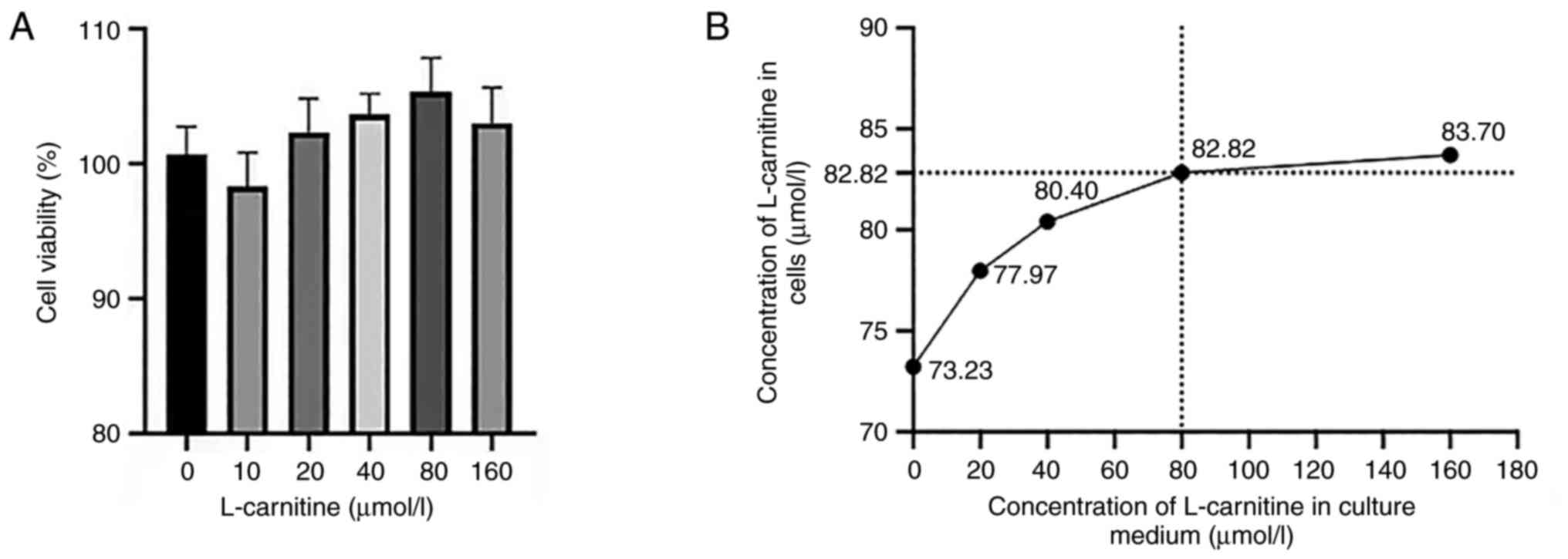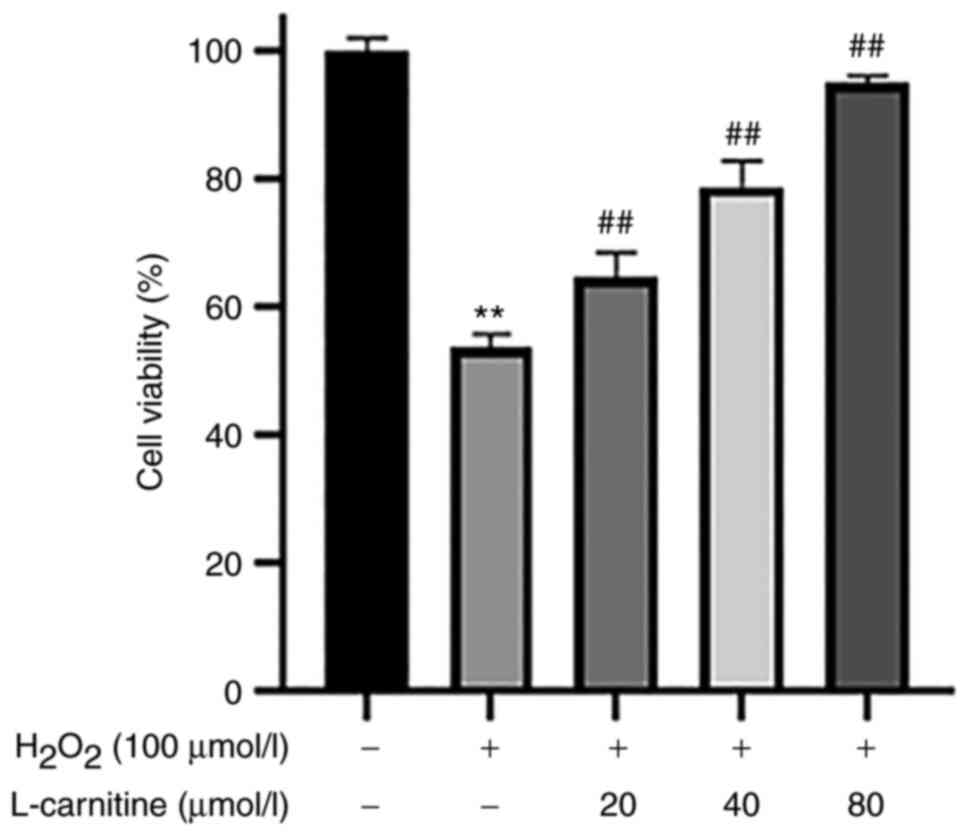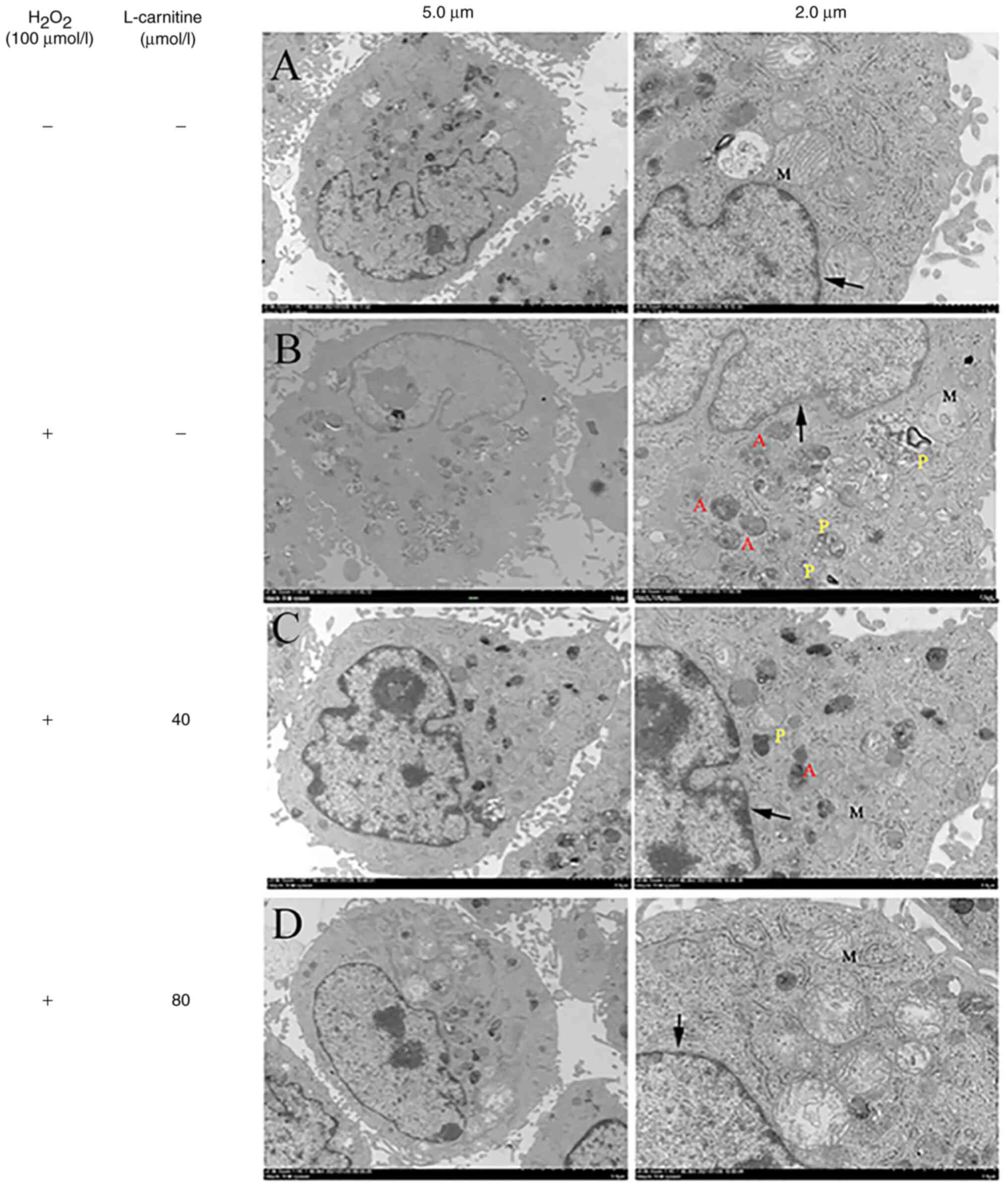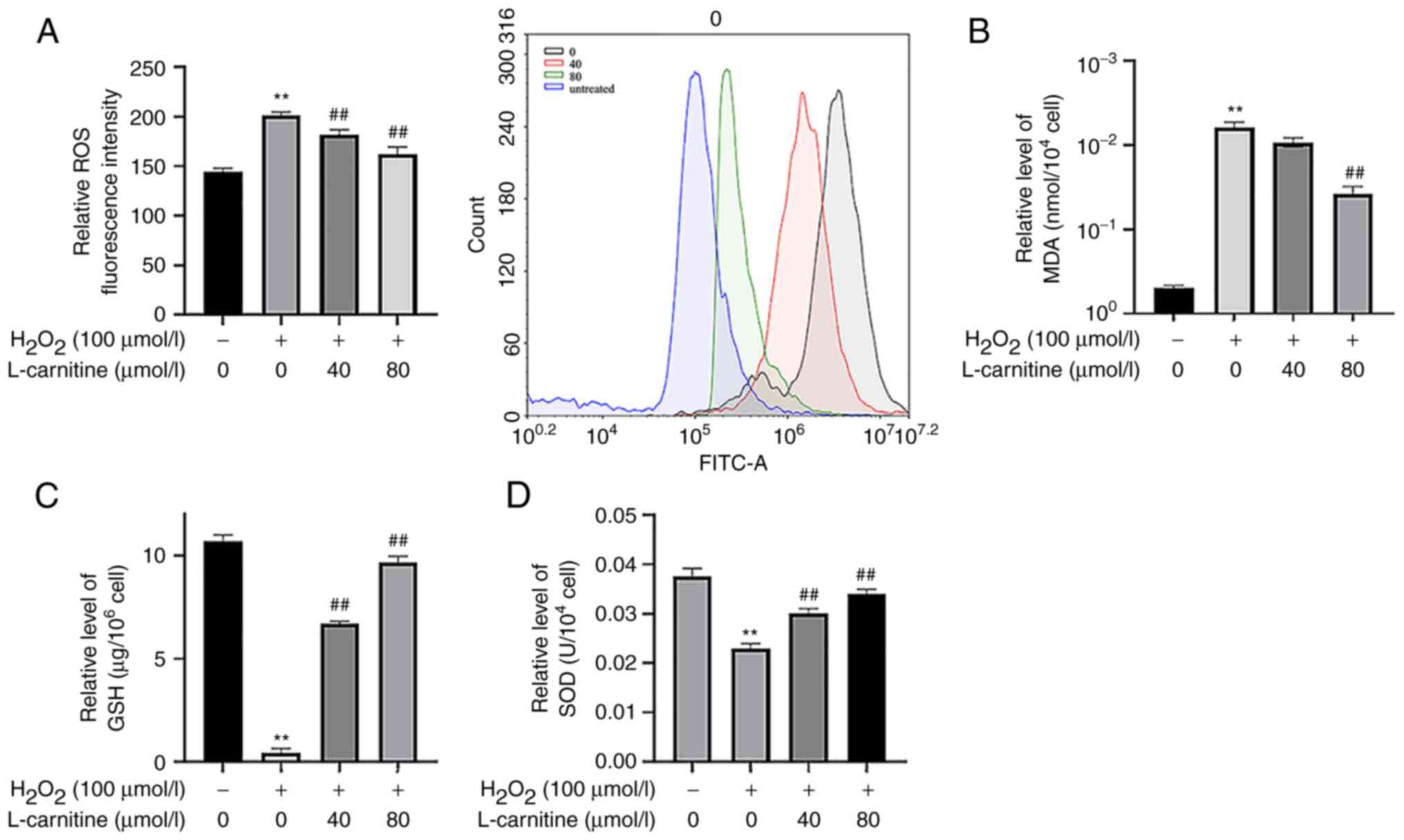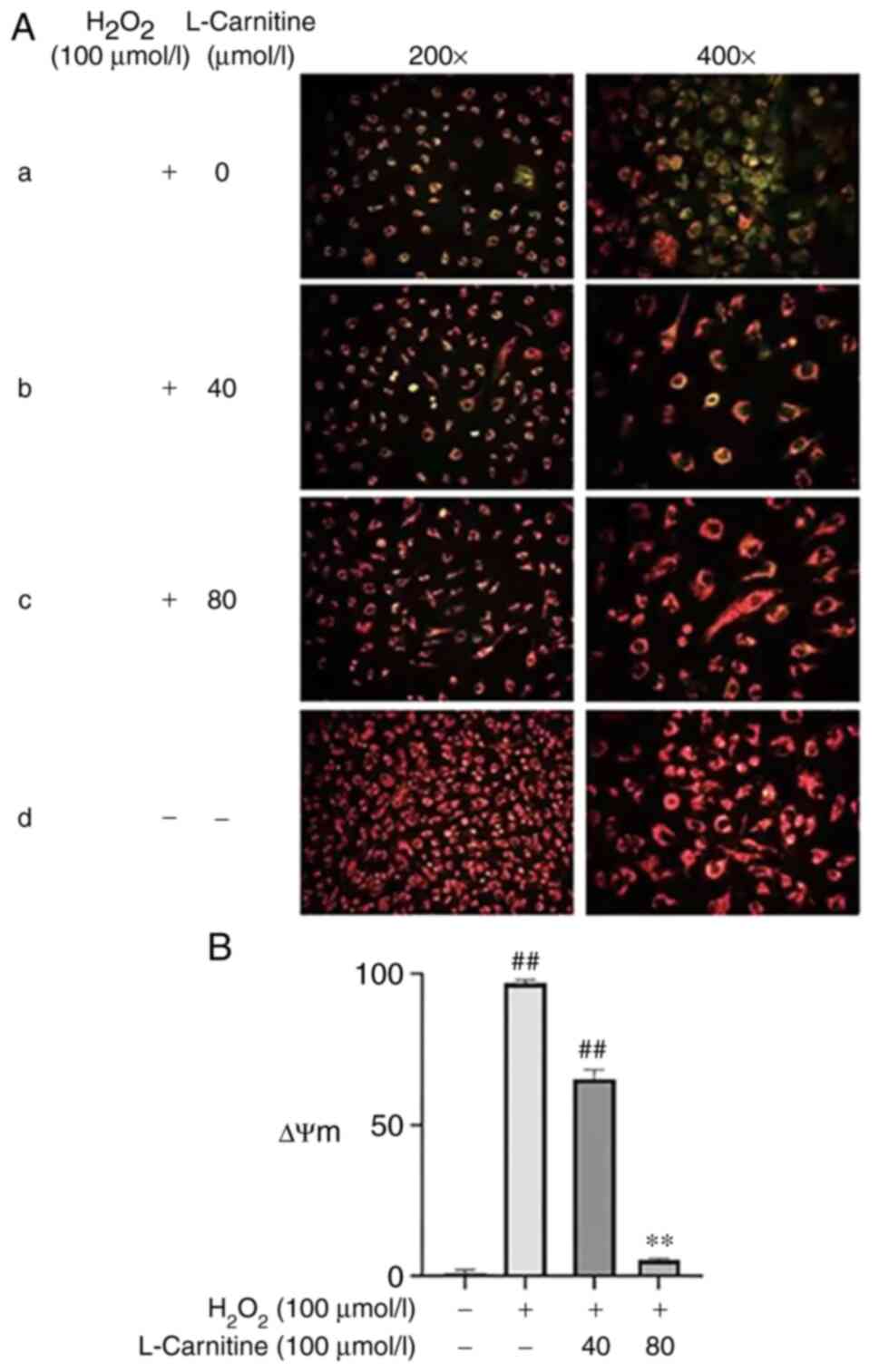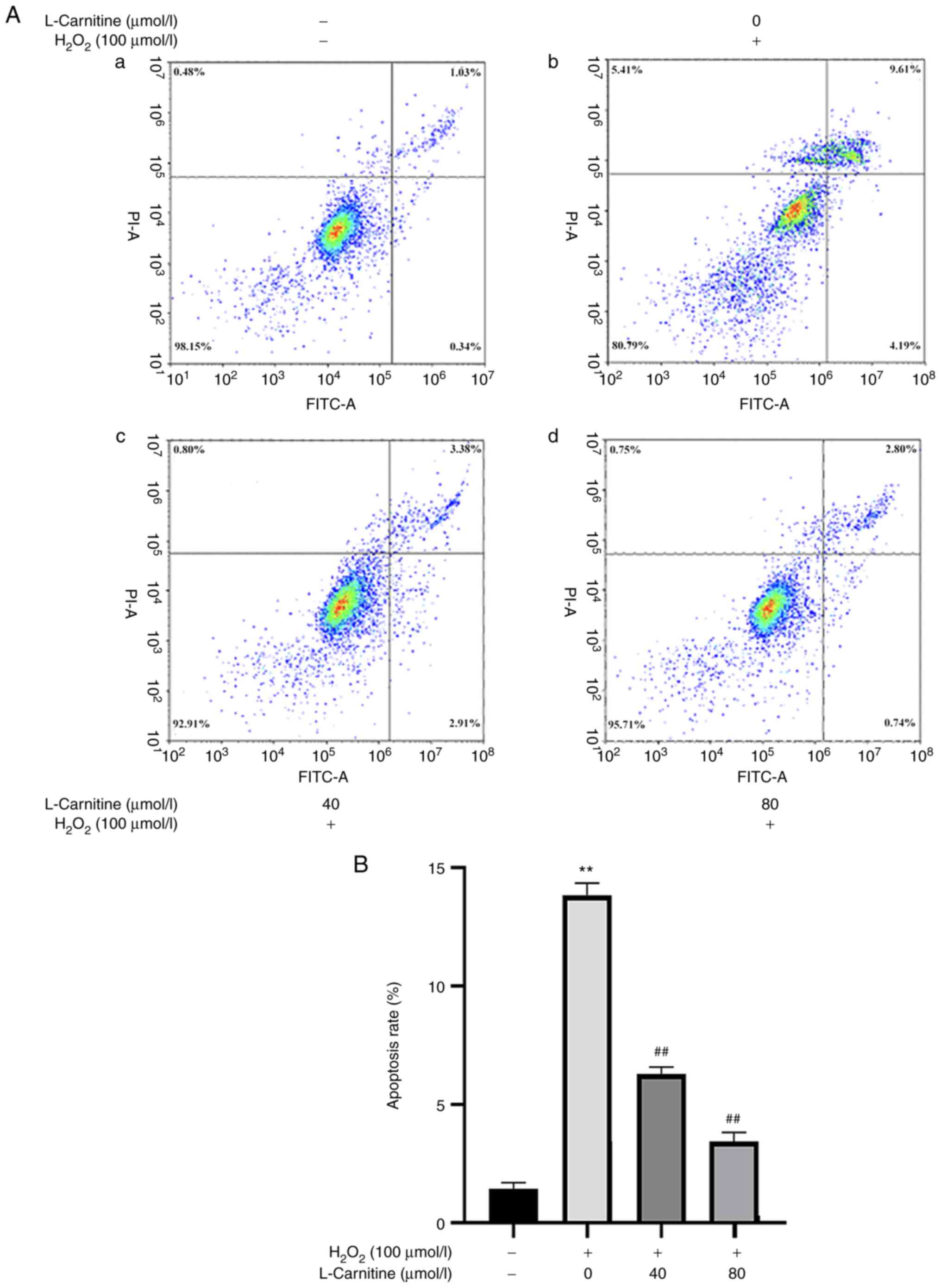|
1
|
Zhang J, Xu Y, Liu H and Pan Z: MicroRNAs
in ovarian follicular atresia and granulosa cell apoptosis. Reprod
Biol Endocrinol. 17(9)2019.PubMed/NCBI View Article : Google Scholar
|
|
2
|
Zhang H, Luo Q, Lu X, Yin N, Zhou D, Zhang
L, Zhao W, Wang D, Du P, Hou Y, et al: Effects of hPMSCs on
granulosa cell apoptosis and AMH expression and their role in the
restoration of ovary function in premature ovarian failure mice.
Stem Cell Res Ther. 9(20)2018.PubMed/NCBI View Article : Google Scholar
|
|
3
|
Matsuda F, Inoue N, Manabe N and Ohkura S:
Follicular growth and atresia in mammalian ovaries: Regulation by
survival and death of granulosa cells. J Reprod Dev. 58:44–50.
2012.PubMed/NCBI View Article : Google Scholar
|
|
4
|
Terao H, Wada-Hiraike O, Nagumo A,
Kunitomi C, Azhary JMK, Harada M, Hirata T, Hirota Y, Koga K, Fujii
T and Osuga Y: Role of oxidative stress in follicular fluid on
embryos of patients undergoing assisted reproductive technology
treatment. J Obstet Gynaecol Res. 45:1884–1891. 2019.PubMed/NCBI View Article : Google Scholar
|
|
5
|
Elmorsy E, Al-Ghafari A, Aggour AM, Khan R
and Amer S: The role of oxidative stress in antipsychotics induced
ovarian toxicity. Toxicol In Vitro. 44:190–195. 2017.PubMed/NCBI View Article : Google Scholar
|
|
6
|
Lu J, Wang Z, Cao J, Chen Y and Dong Y: A
novel and compact review on the role of oxidative stress in female
reproduction. Reprod Biol Endocrinol. 16(80)2018.PubMed/NCBI View Article : Google Scholar
|
|
7
|
González F, Considine RV, Abdelhadi OA and
Acton AJ: Oxidative stress in response to saturated fat ingestion
is linked to insulin resistance and hyperandrogenism in polycystic
ovary syndrome. J Clin Endocrinol Metab. 104:5360–5371.
2019.PubMed/NCBI View Article : Google Scholar
|
|
8
|
Scutiero G, Iannone P, Bernardi G,
Bonaccorsi G, Spadaro S, Volta CA, Greco P and Nappi L: Oxidative
stress and endometriosis: A systematic review of the literature.
Oxid Med Cell Longev. 2017(7265238)2017.PubMed/NCBI View Article : Google Scholar
|
|
9
|
Palumbo A, Rotoli D, Gonzalez-Fernandez R,
Hernandez J and Avila J: Glucose-induced oxidative stress is
associated with increased ALDH3A2 expression and altered response
to FSH in cultured human granulosa-lutein cells (Gl cells) from
young oocyte donors. Fertil Steril. 100 (Suppl 1)(S427)2013.
|
|
10
|
González-Fernández R, Peña O, Hernández J,
Martín-Vasallo P, Palumbo A and Avila J: FSH receptor, KL1/2, P450,
and PAPP genes in granulosa-lutein cells from in vitro
fertilization patients show a different expression pattern
depending on the infertility diagnosis. Fertil Steril. 94:99–104.
2010.PubMed/NCBI View Article : Google Scholar
|
|
11
|
Talenezhad N, Mohammadi M,
Ramezani-Jolfaie N, Mozaffari-Khosravi H and Salehi-Abargouei A:
Effects of l-carnitine supplementation on weight loss and body
composition: A systematic review and meta-analysis of 37 randomized
controlled clinical trials with dose-response analysis. Clin Nutr
ESPEN. 37:9–23. 2020.PubMed/NCBI View Article : Google Scholar
|
|
12
|
Carrillo-González DF, Hernández-Herrera DY
and Maldonado-Estrada JG: The role of L-carnitine in bovine embryo
metabolism. A review of the effect of supplementation with a
metabolic modulator on in vitro embryo production. Anim Biotechnol:
June 21, 2021 (Epub ahead of print).
|
|
13
|
Agarwal A, Sengupta P and Durairajanayagam
D: Role of L-carnitine in female infertility. Reprod Biol
Endocrinol. 16(5)2018.PubMed/NCBI View Article : Google Scholar
|
|
14
|
Li J, Liu L, Weng J, Yin TL, Yang J and
Feng HL: Biological roles of l-carnitine in oocyte and early embryo
development. Mol Reprod Dev. 88:673–685. 2021.PubMed/NCBI View Article : Google Scholar
|
|
15
|
Nishi Y, Yanase T, Mu Y, Oba K, Ichino I,
Saito M, Nomura M, Mukasa C, Okabe T, Goto K, et al: Establishment
and characterization of a steroidogenic human granulosa-like tumor
cell line, KGN, that expresses functional follicle-stimulating
hormone receptor. Endocrinology. 142:437–445. 2001.PubMed/NCBI View Article : Google Scholar
|
|
16
|
Tiwari M and Chaube SK: Moderate increase
of reactive oxygen species triggers meiotic resumption in rat
follicular oocytes. J Obstet Gynaecol Res. 42:536–546.
2016.PubMed/NCBI View Article : Google Scholar
|
|
17
|
Ma B, Liu Y, Zhang X, Zhang R, Zhang Z,
Zhang Z, Liu J, Juan Z, Sun X, Sun L, et al: TSPO ligands protect
against neuronal damage mediated by LPS-induced BV-2 microglia
activation. Oxid Med Cell Longev. 2022(5896699)2022.PubMed/NCBI View Article : Google Scholar
|
|
18
|
Silva EG, Kim G, Bakkar R, Bozdag Z,
Shaye-Brown A, Loghavi S, Stolnicu S, Hadareanu V, Bulgaru D, Cayax
LI, et al: Histology of the normal ovary in premenopausal patients.
Ann Diagn Pathol. 46(151475)2020.PubMed/NCBI View Article : Google Scholar
|
|
19
|
Agarwal A, Aponte-Mellado A, Premkumar BJ,
Shaman A and Gupta S: The effects of oxidative stress on female
reproduction: A review. Reprod Biol Endocrinol.
10(49)2012.PubMed/NCBI View Article : Google Scholar
|
|
20
|
Prasad S, Tiwari M, Pandey AN, Shrivastav
TG and Chaube SK: Impact of stress on oocyte quality and
reproductive outcome. J Biomed Sci. 23(36)2016.PubMed/NCBI View Article : Google Scholar
|
|
21
|
Lee TH, Lee MS, Liu CH, Tsao HM, Huang CC
and Yang YS: The association between microenvironmental reactive
oxygen species and embryo development in assisted reproduction
technology cycles. Reprod Sci. 19:725–732. 2012.PubMed/NCBI View Article : Google Scholar
|
|
22
|
Fu LL, Zhang LY, An Q, Zhou F, Tong Y, Guo
Y, Lu WH, Liang XW, Chang B and Gu YQ: L-carnitine protects the
motion parameters and mitochondrial function of human sperm in
cryopreservation. Zhonghua Nan Ke Xue. 24:1059–1063.
2018.PubMed/NCBI(In Chinese).
|
|
23
|
Dunning KR, Russell DL and Robker RL:
Lipids and oocyte developmental competence: The role of fatty acids
and β-oxidation. Reproduction. 148:R15–R27. 2014.PubMed/NCBI View Article : Google Scholar
|
|
24
|
Kucukaydın Z, Duran C, Basaran M, Camlica
F, Erdem SS, Basaran A, Kutlu O, Burnik FS, Elmas H and Gonen MS:
Plasma total oxidant and antioxidant status after oral glucose
tolerance and mixed meal tests in patients with polycystic ovary
syndrome. J Endocrinol Invest. 39:1139–1148. 2016.PubMed/NCBI View Article : Google Scholar
|
|
25
|
Yang L, Chen Y, Liu Y, Xing Y, Miao C,
Zhao Y, Chang X and Zhang Q: The role of oxidative stress and
natural antioxidants in ovarian aging. Front Pharmacol.
11(617843)2021.PubMed/NCBI View Article : Google Scholar
|
|
26
|
Peters AE, Mihalas BP, Bromfield EG, Roman
SD, Nixon B and Sutherland JM: Autophagy in female fertility: A
role in oxidative stress and aging. Antioxid Redox Signal.
32:550–568. 2020.PubMed/NCBI View Article : Google Scholar
|
|
27
|
Yding Andersen C: Inhibin-B secretion and
FSH isoform distribution may play an integral part of follicular
selection in the natural menstrual cycle. Mol Hum Reprod. 23:16–24.
2017.PubMed/NCBI View Article : Google Scholar
|
|
28
|
Knapczyk-Stwora K, Grzesiak M, Witek P,
Duda M, Koziorowski M and Slomczynska M: Neonatal exposure to
agonists and antagonists of sex steroid receptors affects AMH and
FSH plasma level and their receptors expression in the adult pig
ovary. Animals (Basel). 10(12)2019.PubMed/NCBI View Article : Google Scholar
|















